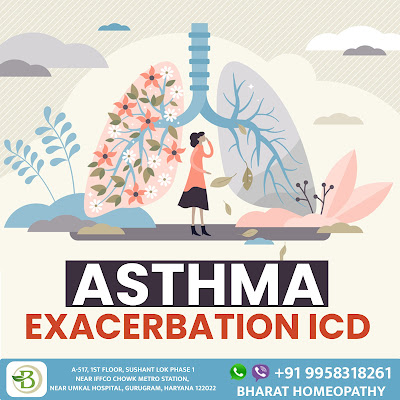How can we cure Asthma Forever
Millions of individuals throughout the world suffer with asthma, a chronic respiratory disease. While many people with asthma are able to properly manage their symptoms, occasionally an asthma attack can happen. The asthma attack symptoms, spotting early warning signals, management techniques, preventative advice, and living with asthma will all be covered in this article.
When the lungs' airways swell and tighten during an asthma episode, breathing becomes challenging. Various factors, such as exposure to allergens, respiratory infections, exercise, or stress, can trigger this narrowing of the airways. Therefore, understanding the severe asthma symptoms is crucial for timely intervention and effective management.
Recognizing the asthma attack symptoms is vital to seek prompt medical attention or take appropriate action. Common Severe asthma symptoms include:-
Coughing: Persistent or recurring cough, especially at night or during physical activity
Wheezing: A high-pitched whistling sound while breathing out, caused by narrowed airways
Shortness of Breath: Difficulty in breathing, feeling breathless, or unable to take a deep breath
Chest Tightness: A sensation of tightness or pressure in the chest
Rapid Breathing: Increased breathing rate or hyperventilation
Difficulty Speaking: Inability to complete entire sentences or speak without interruptions
Bluish Lips or Fingernails: Cyanosis, a discoloration indicating a lack of oxygen
Anxiety or Panic: Feelings of distress, fear, or restlessness
Silent asthma attacks are characterized by a persistent, dry cough that may be the only noticeable symptom. The absence of wheezing or other typical asthma symptoms can make it challenging to recognize and diagnose this form of asthma. To properly manage the disease and get the necessary medical assistance, it's critical to be aware of the minor warning signs.
Mild asthma symptoms, although less severe than those experienced during an asthma attack, should not be overlooked. Early detection of these symptoms and immediate action can help stop the progression of symptoms and improve asthma treatment. Common mild asthma symptoms include:-
Intermittent Cough
Shortness of Breath
Chest Tightness
Wheezing
Fatigue
Nighttime Symptoms
Causes of Asthma Attacks
Both internal and external factors can be the causes of asthma. Common triggers include:
Emotional stress or anxiety
Physical exertion or exercise
Changes in weather conditions
Allergens such as dust mites, pollen
Respiratory infections, including the common cold or flu
Irritants like tobacco smoke, strong odors, or air pollution
Severe asthma symptoms
Severe asthma symptoms can be alarming and require immediate attention. While asthma attacks can range in severity, it's critical to identify the warning symptoms of a serious attack and take the necessary precautions.
Extreme Shortness of Breath: Severe asthma attacks can lead to a significant reduction in lung function, causing intense difficulty in breathing. Individuals may struggle to take even shallow breaths.
Persistent Wheezing: While wheezing is a common symptom of asthma, during a severe attack, the wheezing may become louder and more pronounced. It may be heard even without a stethoscope.
Anxiety and Agitation: As the oxygen levels decrease, individuals may experience heightened anxiety, restlessness, or a sense of impending doom. Panic and fear may accompany severe asthma symptoms.
Inability to Perform Basic Activities: During a severe asthma attack, individuals may be unable to perform even simple tasks such as walking, eating, or getting out of bed. Daily activities become extremely challenging.
Understanding Cardiac Asthma
Cardiac asthma, also known as heart failure-related asthma, is a condition characterized by respiratory symptoms that mimic asthma but are primarily caused by heart problems.
Heart failure manifests as cardiac asthma, which is not a true form of asthma. Inefficient blood pumping by the heart can result in fluid buildup in the lungs. This fluid buildup causes respiratory distress, similar to the symptoms experienced in asthma attacks.
Taking asthma medicines is essential for asthma attack treatment and controlling asthma symptoms. These drugs work to lessen airway inflammation, loosen the muscles that surround the airways, and reduce the severity of symptoms like coughing, wheezing, shortness of breath, and chest tightness.





No comments:
Post a Comment